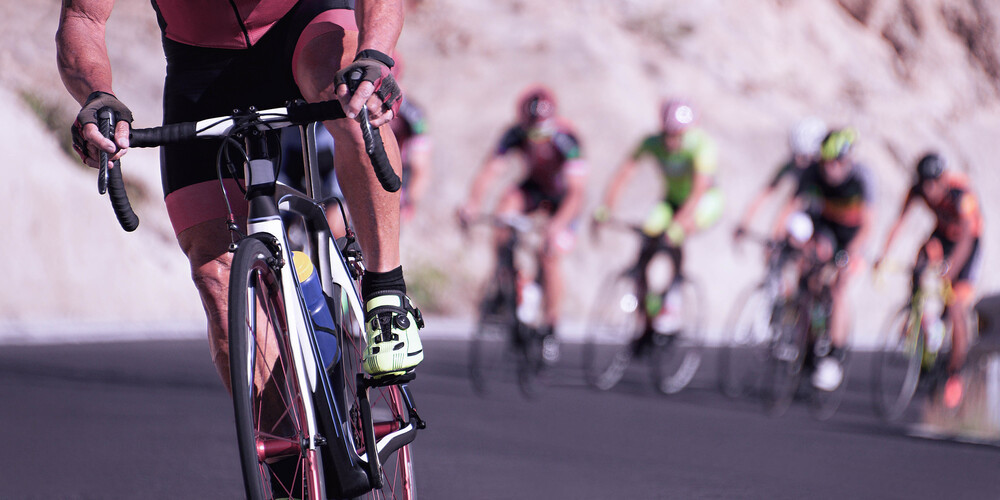Have you ever attended a training camp? Do you know how long it should last and what to look out for? 2PEAK has a special training camp function that helps you get the most out of this intensive training period. We explain everything you need to know about training camps.
No matter whether it’s triathlon, cycling or running, training camps are a valuable tool for taking your fitness level to the next level. They are also a lot of fun. Spending an extended period of time doing nothing but training, eating, sleeping and being with your friends/training partners – what could be better? There are, however, many aspects to consider when planning a training camp. We have summarised the elements to keep in mind in our guidelines for a successful training camp.
The most important points to consider when planning a training camp can be summarised as follows:
- Focus on specific goals
- Volume is more important than intensity – you have more time, use it!
- Be careful of overtraining
- Count hours, not kilometres
- Make sure the group is in line with your abilities
- Keep track of power and intensity
- Develop your technique
- Pay attention to nutrition
- Recovery is always a key factor
- Don’t forget to have fun!
Note that the above list is not exhaustive, but simply summarises some important points. If you need support in planning your training camp, there is a function in 2PEAK to help you with this.
How long should my training camp last?
Of course, in most cases the duration of a training camp is limited by the individual’s ‘daily life’, as work and family commitments are different for each person. However, we have established some general guidelines on the duration of a training camp.
If the camp is shorter and is planned with the 2PEAK ‘training camp’ function, recovery phase before and after the camp can reduce the total training volume. In this case, it is better to extend the training on individual days.
The ideal period for a training camp is 7-14 days. Since it is better to focus on long endurance sessions in a training camp, a longer duration will leave the body too exhausted to benefit from additional training. In this case, short, intense interval sessions should also be incorporated.
When should the training camp take place?
The right time to hold a training camp is subjective and depends on your main goal: if you want to develop your basic endurance, then it is advisable to do it during a base training period, which often coincides with the winter months. Many athletes use this as an opportunity to go to warmer countries, such as the Canary Islands.
Otherwise, the training camp is held before the main race in order to be in top form on day X. However, it should not be too close to the race, as the right mix of training and recovery is needed. For this reason, the training camp should end one month before the target race.
2PEAK helps you to plan your training camp optimally. You will find out how to do this in the next section.
How to plan a training camp on 2PEAK?
As always, 2PEAK takes your goals, background and current training results into account when planning a training camp. By setting up a training camp with 2PEAK, the programme will automatically calculate the correct training volume for you. Users with an ‘Unlimited’ subscription can enter a camp at any time in their settings, as shown here:
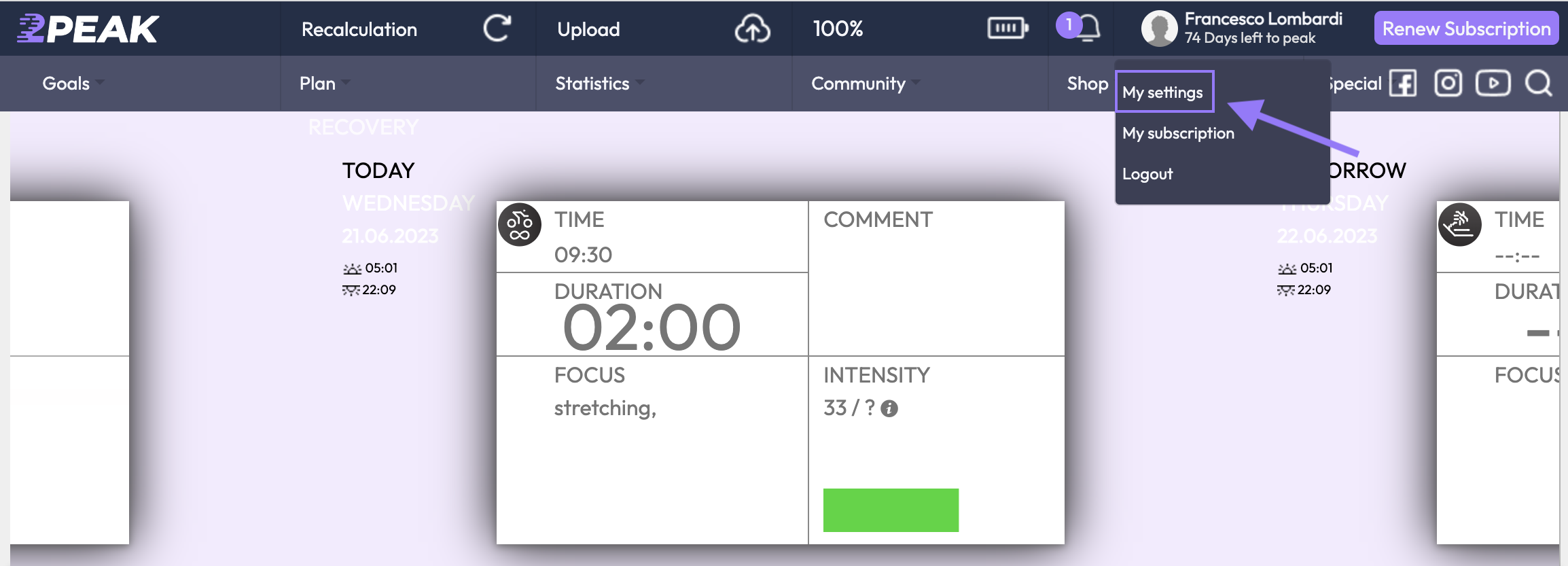
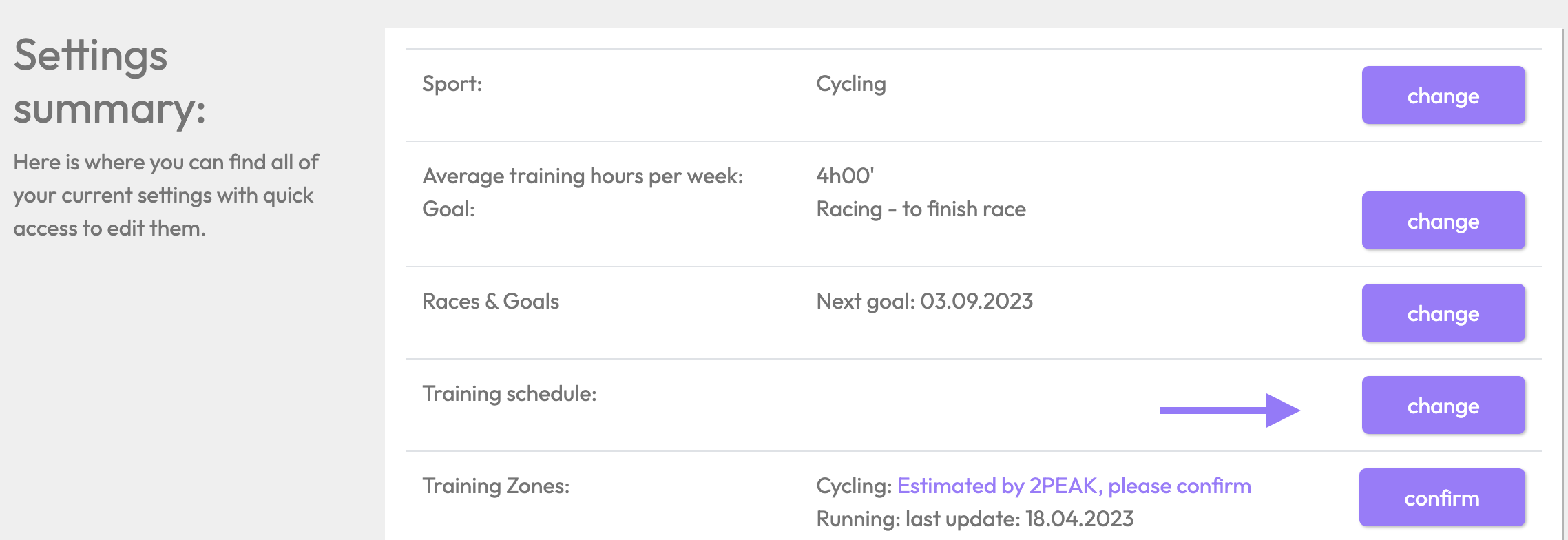
 Once you have entered your training camp dates, the plan calculates the optimal training amount based on your personal data.
Once you have entered your training camp dates, the plan calculates the optimal training amount based on your personal data.
Good to know I: The plan changes not only for the time during the training camp, but also before and after the training camp, so that recovery is not neglected under any circumstances.
Good to know II: 2PEAK also automatically schedules acclimatisation training on travel days. If your travel schedule does not allow this, you can skip these training sessions. Don’t forget to listen to your body’s signals, especially with higher training volumes, to avoid overtraining!
This is what a 2PEAK training camp could look like:
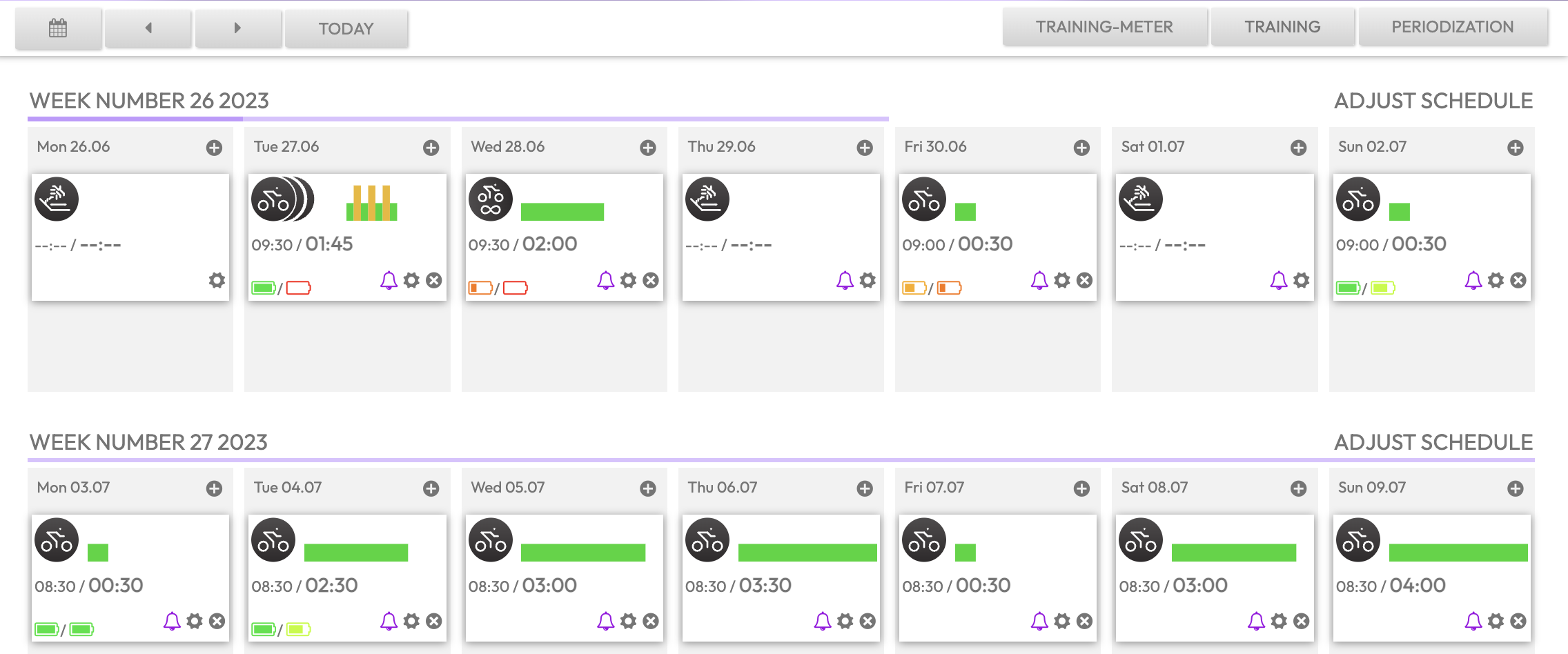
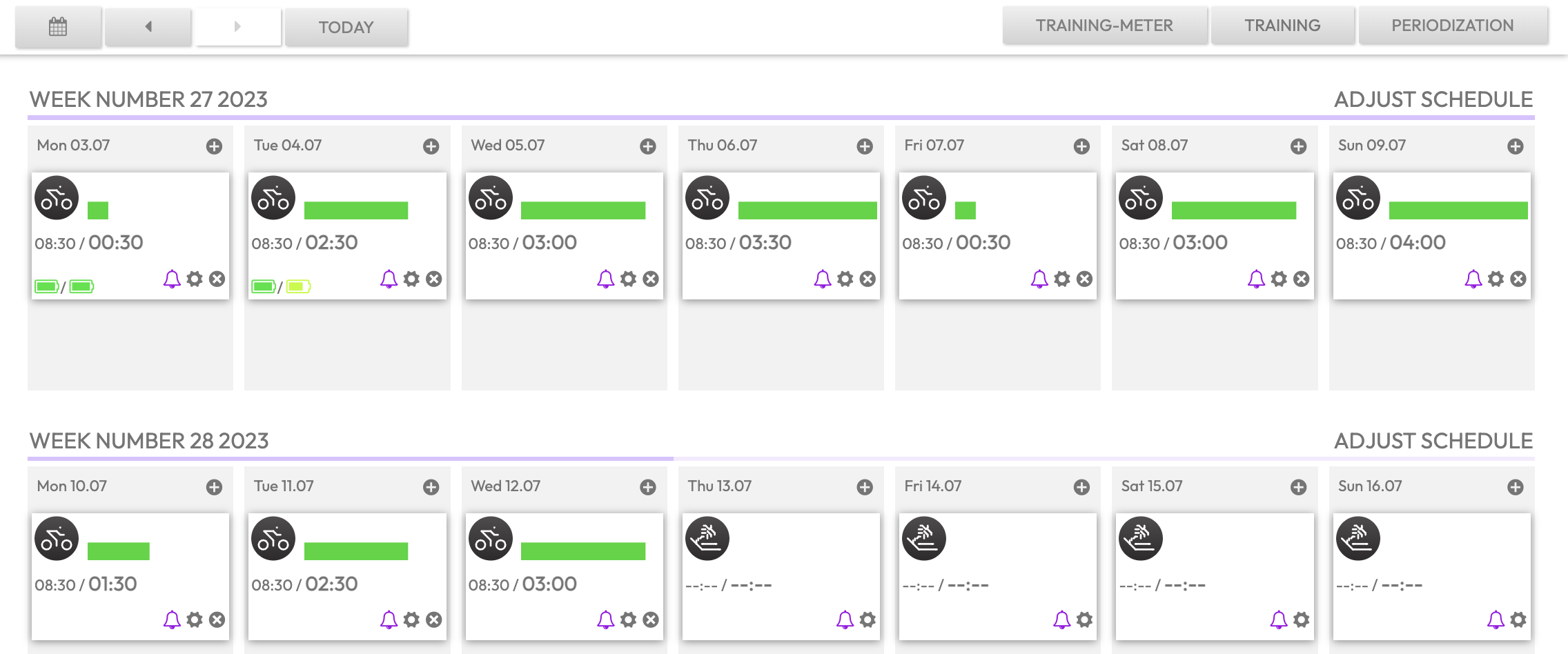
 The above plan focuses on cycling, as it is a time-consuming discipline. Long endurance sessions focus on volume rather than intensity. The training camp may be different depending on your goal, sport, physical level, training experience, duration.
The above plan focuses on cycling, as it is a time-consuming discipline. Long endurance sessions focus on volume rather than intensity. The training camp may be different depending on your goal, sport, physical level, training experience, duration.
